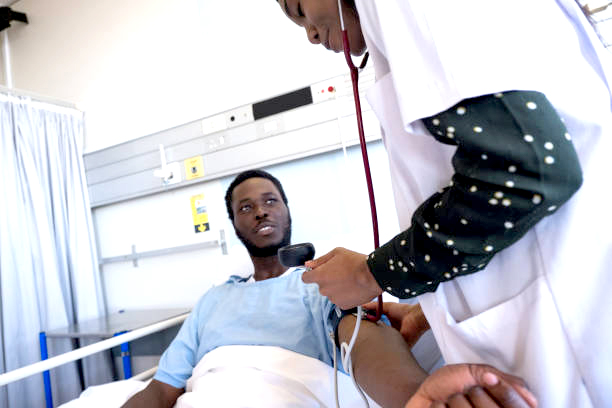by Karen Heslop
According to the American Kidney Fund, almost 40 million Americans have kidney disease with over 800,000 of them in kidney failure. The numbers also show that more than 1 in 3 of the people with kidney failure are Black. When your kidneys aren’t working properly, you need dialysis to clear the build-up of waste from your body. However, there are a few things you need to know to ensure that you remain healthy and get the most out of your dialysis.
10 Helpful Tips For Doing Dialysis
1. Rest Well
It’s typical for people to be tired after going through dialysis. Getting the rest you need will help you recover more easily and may reduce the likelihood of side effects after the treatment.
2. Get The Right Proteins
You may have changed your diet after being diagnosed with kidney disease but you also have to increase the amount of protein you eat. Proteins are known to help with healing wounds and boosting your immune system. The best proteins for you include chicken, turkey, fish, and eggs.
3. Watch Your Fluids
Fluid retention can be an issue with kidney disease so you need to be careful with how much you consume. It’s best to find out from your doctor how much water or other beverages you’re allowed to drink.
4. Stick To Your Medical Regimen
Conditions such as high cholesterol and high blood pressure can be associated with kidney disease. It’s critical to stick with your medical regimen when you’re on dialysis as this helps it to be more effective.
5. Manage Your Stress
Uncontrolled stress can affect your blood pressure as well as make you more prone to developing certain chronic conditions. Doctors recommend keeping your stress levels low as it can affect your overall health.
6. Manage Your Time
Dialysis can take up to six hours depending on what your doctor recommends and the recovery period afterward. Since it can’t be rushed, you have to ensure that you make enough time in your schedule to accommodate this. You’ll likely need to talk to your employer about taking time off.
7. Keep Sodium And Potassium In Check
With your kidney function compromised, it will be difficult to regulate the potassium and sodium in your blood. It’s best to avoid salty foods and keep your daily intake to half a teaspoon or less. High-potassium foods not to eat include nuts, seeds, lentils, whole grains, oranges, bananas, potatoes, tomatoes, and avocados.
8. Don’t Skip Dialysis
Your doctor’s recommendation for a dialysis schedule is based on your needs. This can change depending on what the regular blood tests say. Skipping dialysis can result in the build-up of waste in your body and make you sick.
9. Ask Your Doctor About Expectations
The preparation for dialysis will vary based on your access port but your doctor can prepare you for the experience. For example, there may be some bleeding after the procedure that has to be monitored.
10. Be Careful With Supplements
There are supplements on the market that will claim that they boost your kidney’s health. Unfortunately, this may not be a valid claim. If you’re thinking about taking one of them, it’s best to talk to your doctor first as the wrong supplement can cause more kidney damage.
When To Talk To Your Doctor
Dialysis shouldn’t be painful but it’s common to experience a few side effects during and after the treatment. While undergoing dialysis, you may have dizziness, a headache, an upset stomach, or cramping. When you’re finished with dialysis, you may have low blood pressure, nausea, vomiting, headaches, or cramps. However, those issues should be temporary and shouldn’t occur after your first few treatments. If this isn’t the case, you need to let your doctor know as they may have to adjust the process.
If you’re undergoing dialysis, you’re also at risk of developing an infection at your vascular access site. Whether you have a catheter, graft, or fistula, you need to pay attention to any changes around the area. These signs can include red skin, the appearance of pus, and skin that’s hot to the touch. Sometimes, the infection gets into the blood before you notice anything on the outside. In that case, you may have a fever, shortness of breath, clammy skin, or a weak pulse. You should bring all of these issues to your doctor’s attention so the infection can be treated quickly.
When you’re dealing with kidney failure, dialysis is necessary to keep you healthy. However, it’s essential that you take care of yourself while undergoing the treatment. If you see any signs of an infected access port or that an infection has developed internally, talk to your doctor immediately.











